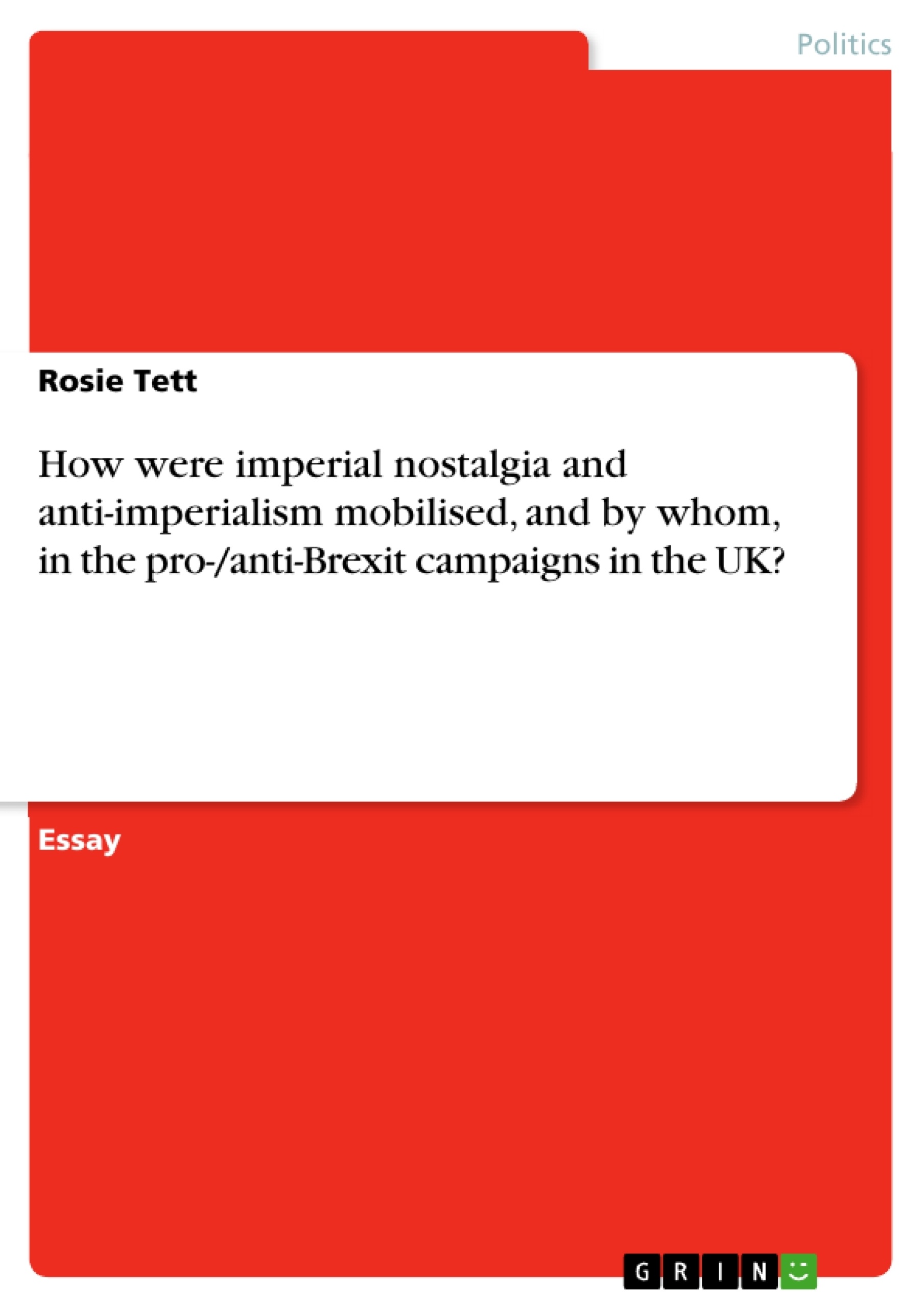The 2016 UK referendum on continued membership of the European Union (EU), which concluded in a victory for the Leave campaign, has been argued by many to have been less a debate on the pros and cons of membership, but rather a proxy for discussions about race and migration.
Many believe that “imperial nostalgia” was mobilised and was a leading factor in the success of the Leave vote, with 52% of the population voting in its favour. It became widely theorised by academic commentators, with the argument that many Leave voters were partial to imperial patterns of thought, consciously or not, and that the terms on which the creation of the EU referendum took place are indicative of the UK struggling to place itself in the world post-Empire.
However, it is thought that “imperial nostalgia” was oftentimes combined with and in lieu of “imperial amnesia”, with individuals longing for an independent, self-sustaining, homogenous Britain, that never truly existed, and how this train of thought was used to campaigner and politician’s advantage.
This essay first explores how imperial nostalgia was mobilised by pro-Brexiters in the referendum and how they used colonial terms in their favour, but also how imperial nostalgia and anti-imperialism was mobilised by those in support of Remain.
Inhaltsverzeichnis (Table of Contents)
- Imperial Nostalgia and Anti-Imperialism in the Brexit Campaigns
- Brexit and Imperial Nostalgia: A Proxy for Race and Migration
- The “Take Back Control” Slogan and Imperial Nostalgia
- The Legacy of British Imperialism and Brexit
- The Use of Colonial Language in Brexit Discourse
- Brexit and the Commonwealth: Reviving Imperial Ties?
- Beyond Nostalgia: Anti-Imperialist Mobilization in the Remain Campaign
Zielsetzung und Themenschwerpunkte (Objectives and Key Themes)
This essay examines the role of imperial nostalgia and anti-imperialism in the pro- and anti-Brexit campaigns in the UK, specifically focusing on the 2016 referendum. It aims to analyze how these ideologies influenced voting patterns and shaped the political discourse surrounding Brexit.
- Imperial Nostalgia in Brexit Discourse
- The "Take Back Control" Slogan and its Relation to Imperial Nostalgia
- The Role of the Commonwealth in Brexit Rhetoric
- Anti-Imperialist Mobilization by the Remain Campaign
- The Legacy of British Imperialism and its Impact on Brexit
Zusammenfassung der Kapitel (Chapter Summaries)
- The first section explores the argument that the Brexit referendum was not just about the pros and cons of EU membership but also a reflection of anxieties about race, migration, and the legacy of British imperialism. It examines the concept of "imperial nostalgia" and its potential influence on the Leave vote.
- The second section analyzes the phrase "take back control" as a key slogan used by the Leave campaign. It argues that this slogan evokes a desire for the "control" Britain once held as an imperial power, highlighting a longing for a past that may never have existed.
- The third section discusses the argument that Brexit is rooted in British imperialism and its legacy, particularly in relation to post-war migration from former colonies and the decline of Britain's global hegemony.
- The fourth section delves into the use of colonial language by pro-Brexit politicians and commentators, suggesting that they were mobilizing imperial nostalgia for political gain. It also explores the ironic reversal of this sentiment, with Brexiteers perceiving Britain as a potential "colony" of the EU.
- The fifth section examines how the Leave campaign targeted voters from former British colonies, attempting to frame Brexit as a means to strengthen ties with the Commonwealth and revive economic connections with these countries.
- The sixth section explores the mobilization of anti-imperialist arguments by the Remain campaign, which sought to counter the Leave campaign's use of imperial nostalgia. It analyzes the Remain campaign's attempts to highlight the benefits of EU membership for Commonwealth countries and challenge the idea of a "new empire" under a post-Brexit Britain.
Schlüsselwörter (Keywords)
The primary keywords and themes within this text include imperial nostalgia, anti-imperialism, Brexit, the European Union (EU), the Commonwealth, migration, race, and the legacy of British colonialism.
- Quote paper
- Rosie Tett (Author), 2022, How were imperial nostalgia and anti-imperialism mobilised, and by whom, in the pro-/anti-Brexit campaigns in the UK?, Munich, GRIN Verlag, https://www.grin.com/document/1359916




